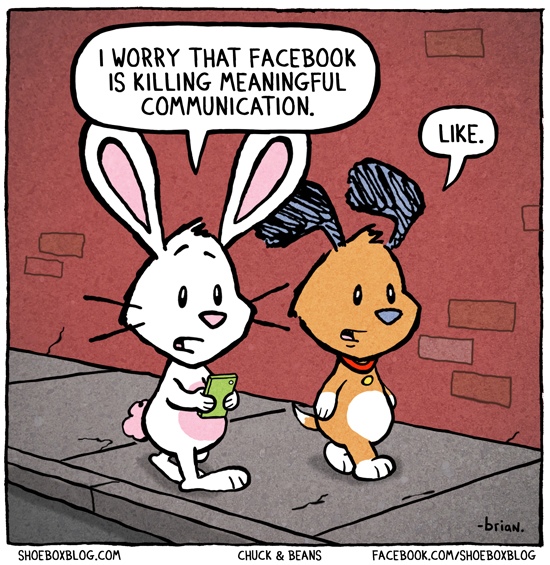Loneliness Paradox
Advancements of computer and Internet have helped us to expand our social network to the degree where we did not imagine before. Before telephones, physical distance and delivery time limited communication between people. After computers and Internet, global networks were so conveniently established, but were still limited by the mobility. With the introduction of smart phones, every obstacle to networking has disappeared. Now, our social network’s nodes expanded so far globally. In addition, time, location, and place are no longer barriers when accessing social networks. People use their smart phones almost everywhere and any time. Smart phones’ WiFi services always connect us to our social networks. Even when there is no wireless services, 3G and 4G LTE networks help us to stay connected to our networks.
As much as the technology helps us connect with other people online, it left us with much stress to deal with. It caused people addiction, for many people as they feel anxious when they are away from their smart phones. And some people feel false vibrations, where they feel vibrations when they did not receive any alerts in reality. In the world where everyone is connected, one feels very uneasy disconnecting oneself from the network.
Most importantly, social networking is making people lonelier, which may sound somewhat paradoxical. Today’s technology with smart phones connects people to their social networks 24/7. Furthermore, it tremendously increased number of nodes connected to them. Moreover, methods of communication have turned into messages that are in texts, “emoticons”, or “thumbs up”. Much of people’s conversations have become superficial, because they spend less time talking to people face-to-face or on the phone, and in addition, much of those conversations are public—seen by many other people in the network. Moreover, a portion of people’s online friends result from triadic closure, which very likely result in only a weak tie, since their friendship is developed online (for example, a person’s mutual friends commenting on a same post and becoming acquaintances), rather than in real life. Furthermore, people add acquaintances they have met only once or few times in real life (for example, at a party), as friends online and this results in establishment of weak ties that have less potential to develop into strong ties. People may have large number of friends in their online network, but increase in number of weak ties resulting from online social networks make people lonelier than ever.
Since one person is connected to so many nodes, friends are audience to one’s broadcast. Examples of these are Facebook and Twitter. People worry about what sorts of their lives to share, to the online audience.
| Another friend | |||
| Post attractive material | Post serious material | ||
| Me | Post attractive material | (5, 5) | (7, 2) |
| Post serious material | (2, 7) | (1, 1) | |
Here, the payoffs of the “posting game” are responses that the audience make, in response to the posts made. Sharing an interesting/attractive experience one had with others gets much more response from others, in the sea of information of the social network. To receive attention and feel connectedness to the social network, dominant strategy is to post attractive material. To get a high payoff, people struggle to share only the fun and interesting part of their lives. They have lesser number of meaningful conversation with other peole, but they are broadcasting to some space, not knowing who will actually listen. In order to gain attention and stay connected to others in the sea of connections, people feel the pressure to create a persona, who is living an exciting life, who is popular, happy, and worthy of attention. As people project exaggerated identities of themselves, they feel more and more isolated because they are masking their real selves. Many feel low self-confidence, looking at others sharing their extravagant daily lives with others. Looking at the news of others having good times in their uploaded pictures and showing off their achievements, many people feel inferiority and low self-esteem comparing one’s “less exciting” lives to those of others. This kind of stress people feel leads to loneliness.
Many people being connected together all the time and everywhere may have created an illusion of intimacy and connectedness, but instead, communication has become more superficial. Since people are exposed to so many connections in network every minute of the day, number of real confidants decrease. According to Dunbar’s number, people can only maintain about 150 social relations. In an attempt to alleviate barriers of communication and to desperately connect ourselves to others, we found ourselves isolating ourselves. People are collectively becoming alone, together.

Sources
http://www.cnn.com/2012/09/10/tech/mobile/our-mobile-society-intro-oms/index.htm
http://www.theatlantic.com/magazine/archive/2012/05/is-facebook-making-us-lonely/308930/
http://laughingsquid.com/wp-content/uploads/facbook-comic.jpg
-highsociety
